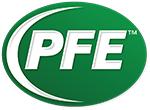FAQS
Hear from Lou Tacito, Founder and CEO for the past present and future of Plastics Forming Enterprises.
The movie, The Graduate, was leading the “Plastics Revolution” when the chemical industry was thinking about the potential of replacing the heavy and dangerous glass pressure vessel with plastic. I became part of a team of young engineers researching the materials and processes to stretch blow mold PET resin that had been used for high strength tire cords and strapping. Continental Can Company (metal cans) and Owens Illinois (glass bottles) needed to move with the threat of a new plastic replacement, but leading brands needed to see the potential and creation of the plastics industry to support it as glass already had this infrastructure
The last project I had with Continental was to figure out what to do with these new bottles that Coke was required to take back from consumers in the Deposit Bill states where litter was the primary concern. The need to expand the knowledge base to support this new industry was the priority. The only people who were involved with recycling post-industrial fiber and strapping were Wellman and St. Jude Polymer respectively. The need to create a trade group with technical resources became a “go to” group for direction. I became one of the founding fathers of the Society of Plastic Engineers (SPE) Recycle Division and Association of Post-Consumer Recyclers (APR).
I saw an opportunity and created the first PET packaging application using recycled sheet. Our first company was known as Polyester Products and we were in a partnership with a recycler (St. Jude) and a thermoformer (Hub Folding Box).
The need to support the Cokes global expansion of soft drink bottles required recycle technology to assist the systems for collection and recycling. Simultaneously researching and engineering the first facilities by integrating the processes which were used in the other industries such as farming, mining, chemical, food and plant processing. I needed to sort, grind, air separate paper and plastic labels, wash and rinse off glue and residual contents and sink float the polyolefins and then separate the aluminum caps that had PVC liners in the ground flake form.
The combination of redesigning the package and developing the next generation of equipment drove the changes. Over the next 25 years companies like Sorema, Amut, Herbold etc. focused on the washing systems while companies like NRT, MSS, TiTech etc. focused on sorting technologies.
Simultaneously we helped the brand owners and conversion companies to “Design for Recycling” which was the one piece bottle without a base cup, the plastic versus paper label and plastic caps with no PVC liners made a huge difference and created a viable quality and efficient operation.
I needed to guide the connection between the package designers and the recycle equipment developers whether it was the sorting for colors and polymers with optical sorters or assessing a resin company and label company to make good decisions for the brand owners to evaluate.
The acceptable quality levels were established by using “New Test Protocols”. These were the first Design Guidelines to be instrumental in setting standards for all stakeholders to focus on.
The most challenging application became the “Food Grade” application back into bottles. Coke deserves the credit for driving this agenda globally and creating the guidelines for food safety used today by the FDA /EFSA and other countries. The combination of processing technology and quality assurance required us to work closely with all the equipment companies.
As I referred to the Food Grade Material in the equipment question, this area has been very involved with government regulations. The technologies have been targeted to meeting the worst case situations. The growth potential is tied to the supply of quality material.
This is also expanding in areas where material is being generated from dedicated collection systems.
Plastic is everywhere and being used successfully in all major markets. The real opportunity is to better understand the global initiative for the use of the recycled plastic as a resource into a circular economy. It is being driven through the sustainability goals of consumer product companies.
However, the ongoing challenge is oil and gas prices. Recycling still needs to be equal to or less than virgin resin prices.
The biggest misperception is that recycling is easy!!! Technical and economic factors create a very complex business structure.
Looking back over 30 plus years, I feel the regret of not doing more while I was younger.
I would say my parents who showed me how to persevere and never give up. Otherwise a gentleman, Bob Ramsdell was a mentor who coached me during my darkest hours and greatest victories both in family and in business. Bob recently died at the age of 94 and I will miss him greatly.
Do your homework by knowing your supply and markets. Make sure you have adequate resources. Keep an open mind and always ask questions while you continue to learn.
Listen to people who have valuable experience. I always tried to align with genuine people who are
DOERS. Stand on your own and believe in yourself and your ideas. Every day I instill this into my daughters plans forward for the business.
